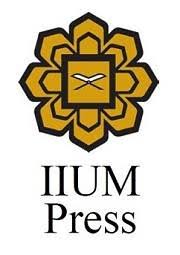Islamic Economic Framework for the Exercise of Islamic Financial Activities: its Conformity with Maqasid Shari`ah
DOI:
https://doi.org/10.31436/alburhn.v7i1.300Abstract
ABSTRACT
With the establishment of Islamic banks throughout the latter half of the 20th century, Islamic finance became institutionalized. The emergence of new Islamic banks was accompanied by the emergence of Islamic insurance firms and other Islamic financial organizations. The Maqasid al-Shari’ah in financial transactions reveals the overarching goals and significance to which it aspires through decision-making. It is clear from the careful and continuous examination of several Qur'anic verses and the Prophet's (PBUH) Sunnah regarding financial matters that the Shari'ah has adhered to specific objectives in formulating its financial laws and regulations. These objectives include the fair distribution of wealth within society, continual wealth investments, the satisfaction of economic prosperity for all through the satisfaction of basic human needs, the openness of financial transactions to avoid disputes, and the legitimacy of ownership of private and public wealth. The study offers a Maqasid-based development paradigm, which views development from the perspective of extracting benefit and removing harm. This calls for fostering things that make life simpler, more meaningful, and prosperous while preventing all causes of harm, socioeconomic hardship, and underdevelopment. The approach's strength lies in the proper weight it accords to morality, spirituality, and faith as catalysts for prolonged moderate growth and in its emphasis on all-encompassing yet restrained material progress. The study argues for a detailed investigation of the economic growth and the science of Maqasid al-Shari'ah. The qualitative method is applied in this study to evaluate the fundamental concept of Maqasid Al-Shariah from the primary and secondary sources of knowledge in Islam, which shows the model of the economic system to identify the challenges of governing the Islamic banks and Islamic financial activities accordingly.
Keywords: Islamic banks, Islamic Insurance, Financial Institutions, Maqasid al-Shari'ah
Downloads
References
Abozaid, Abdulazeem, and Asyraf Wajdi Dusuki. (2007). "The challenges of realizing maqasid al-shariah in Islamic Banking and Finance." In IIUM International Conference on Islamic Banking and Finance, IIUM Institute of Islamic Banking and Finance.
Al-Mubarak, Tawfique, and Noor Mohammad Osmani. (2010). "Applications of Maqasid al-Shari’ah and Maslahah in Islamic Banking practices: An analysis." In International Seminar on Islamic Finance in India.
Alam, Nafis. (2017). Islamic Finance: A Practical Perspective. Palgrave Macmillan.
Ali, Syed Nazim. (2017). "Moving towards community driven Islamic finance." Journal of Islamic Business and Management.
Qureshi, Anwar Iqbal. (n. d). Islam and the Theory of Interest with a New Chapter on Interest Free Banking. Muhammad Ashrafi, Lahore.
Ausaf Ahmad. (1993). Contemporary Practices of Islamic Financing Techniques. Jeddah: Islamic Research and Training Institute, Islamic Development Bank.
Chibli Mallat. (1988). Islamic law and Finance. London: Graham & Trotman.
Errico, Luca, and Vasudevan Sundararajan. (2002). "Islamic financial institutions and products in the global financial system: Key issues in risk management and challenges ahead.
Frank E. Vogel and Samuel L. (n.d). Islamic Law and Finance: Religion, Risk, and Return. London: Kluwer Law International.
Gamal Eldin Attia. (2007). Towards Realization of the Higher Intents of Islamic Law. Washington: International Institute of Islamic Thought.
Hamed, Safei El-Deen. (1993). "Seeing the environment through Islamic eyes: Application of Shariah to natural resources planning and management." Journal of Agricultural and Environmental Ethics.
Auda, Jasser. (2008). Maqasid al-Shari’ah as Philosophy of Islamic Law: A System Approach. Washington: International Institute of Islamic Thought.
Lamıdo, A. A. (2016). “Maqasid al-Shari’ah as a Framework for Economic Development Theorization.” International Journal of Islamic Economics and Finance Studies. Retrieved from https://dergipark.org.tr/en/pub/ijisef/issue/29331/313839
Laldin, Mohamad Akram. (2008). "The role of Shari’ah advisors in the development of Islamic securities." in MA Laldin, Fundamentals and Practices in Islamic Finance. Kuala Lumpur: ISRA.
Lewis, Mervyn K. (2001). "Islam and accounting." In Accounting forum. New York: Taylor & Francis.
Mahyudin, Wan A'tirah, and Romzie Rosman. (2020). "Value-based intermediation and realization of Maqasid Al-Shariah: Issues and challenges for Islamic banks in
Malaysia." Advanced International Journal of Banking, Accounting and Finance.
Kamali, Mohammad Hashim. (2002). Islamic Commercial Law an Analysis of Futures and Options. Kuala Lumpur: Ilmiah Publishers.
Siddiqi, M. Nejatullah. (1996). Role of the state in the economy: an Islamic perspective. Leicester, UK: Markfield Dawah Centre.
Thani, Nik Nozrul, M. Ridza, Megat Hizaini Hassan. (2003). Law and Practice of Islamic Banking and Finance. Kuala Lumpur: Sweet and Maxwell Asia.
Olanrewaju, Aminu Sikiru, Amirul Shah Md Shahbudin, and Habeebullah Zakariyah. (2020). "A synthesis of the Islamic social finance for sustainable Islamic social enterprise: A four factor of production frame." Journal of Critical Reviews.
Platonova, Elena. (2013). "Corporate social responsibility from an Islamic moral economy perspective: A literature survey." Afro Eurasian Studies.
Saad, Muhammad Aizat, and Wan Nazjmi Mohamed Fisol. (2019). "Financial technology
Azmi, Sabahuddin. (2004). Islamic Economics. New Delhi: Goodword Books.
Sairally, Salma. (2007). "Community development financial institutions: Lessons in social banking for the Islamic financial industry." Kyoto Bulletin of Islamic Area Studies.
Yusuf Talal DeLorenzo. (2001). A Compendium of Legal Opinions on the Operations of Islamic Banks. London: Institute of Islamic Banking and Insurance.
Downloads
Published
How to Cite
Issue
Section
License
In general, reusing or reproducing substantial portions of al-Burhān content requires permission. This includes the use of text, figures, tables, multimedia content, and any other material published in any issues of al-Burhān Journal of Qur'an and Sunnah Studies. For some instances, al-Burhān may make its content freely viewable; however, such material may require permission for reuse. To seek permission, please contact the editorial.









